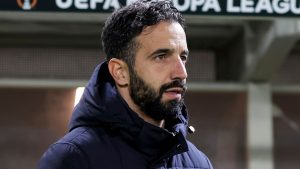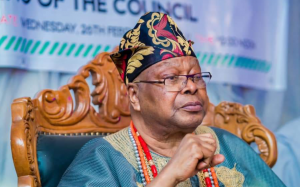Jacob deGrom has been a Met for 12 years. But his free agency is unique


The first time Jacob deGrom said he would opt out of his contract with the Mets, he mentioned it in passing. Really, the first declaration that one of the best pitchers in baseball, if not the best, had decided to enter free agency once the season was over, was easy to miss.
DeGrom snuck in his opt-out decision while answering a question about Mets owner Steve Cohen, who just one day earlier had said he would wait until after the season to discuss deGrom’s contract with him. DeGrom took a different course of action. Rather than waiting until the end of the season, the right-handed ace, then coming off an injury-plagued season, announced his thought process regarding the opt out.
“Yeah, that’s the plan,” deGrom said on March 14. “I won’t take any more on this, but that’s the business side of baseball. As a player, you build in opt-outs, and that’s the business side. For me, I don’t want that to be any distraction. Like I said, I’m excited about this team. I’ve said it before: I’ve loved being a Met and think it would be really cool to be one for my entire career. But the plan is to exercise that option and be in constant contact in the offseason with the Mets and Steve Cohen and the front office.”
This all took place during deGrom’s first news conference of the spring, back in March after the owners’ lockout ended, when the Mets rolled their star players into their Port St. Lucie conference room. The interview, which was held in front of 10-15 reporters, was designed for deGrom to reveal mundane things like how his offseason went, his goals for the year ahead and an update on his injury recovery.
These news conferences were so routine, and so mundane, that what escaped deGrom’s mouth as he sat at a Mets-logoed table with a microphone in front of him was, at first, difficult to believe. His decision to opt out was so hidden and so casually mentioned that, a minute or so later, deGrom was asked to clarify exactly what he had just said.
A reporter asked: “Just to be clear, you are triggering the opt out?”
DeGrom simply replied: “Yes.”
Once the tweets were sent, editors requested headlines on the breaking news and the dust settled, deGrom’s decision to opt out wasn’t so difficult to believe. It was the timing of his announcement, which arrived after he’d missed half of the previous season due to injury and while his 2022 season was unknown, that was surprising. DeGrom was, as it turned out, betting on himself.
Before the 2019 season, the Wilpon-owned Mets and deGrom agreed to a five-year, $137.5 million contract extension with an opt out after the 2022 season.
DeGrom was coming off his first Cy Young season when he agreed to the deal and, by most accounts, this contract extension was thought to be team friendly. Just a few days earlier, Chris Sale and the Boston Red Sox had agreed to a five-year, $145 million contract extension. A year later, Gerrit Cole and the Yankees agreed to a record-breaking nine-year, $324 million deal — the largest contract ever given to a pitcher — sporting an average annual value (AAV) of $36 million. Then, consider Max Scherzer’s contract with the Mets, who broke Cole’s record when he signed a three-year, $130 million deal with an AAV of $43.3 million ahead of the 2022 season.
If deGrom had not opted out, he was due to receive $32.5 million from the Mets in 2023. Now, in free agency, deGrom is expected to receive close to Scherzer’s AAV, and potentially break his record by earning a few million more annually.
Throughout his 2022 season, a year that saw him sustain a shoulder injury in spring training that delayed his debut until August, deGrom stood firm in his previously announced decision to opt out. At 34 years old, deGrom remained confident he would display his usual dominance in the two months of the regular season that he had left.
Then, over the course of 11 regular-season starts and 64 ⅓ innings, deGrom went 5-4 and posted a 3.08 ERA — his highest ERA since 2017 — and the same 14.3 strikeouts per nine innings pitched as he recorded in 2021. DeGrom disembarked from his superhuman podium this past season, but he still showed the familiar flashes of brilliance and dealt the 100-plus mph fastballs that earned him back-to-back Cy Young awards in 2018 and ’19. His 2.24 xERA and 2.13 FIP would have also ranked first in MLB had he pitched enough innings to qualify. Eventually, he finished on a high note with just two earned runs allowed and eight strikeouts registered over six innings against the San Diego Padres during his lone postseason start in Game 2 of the Wild Card Series.
Soon, in the weeks and months ahead, we will find out whether deGrom’s Oct. 8 playoff outing at Citi Field in front of over 42,000 fans who worship him was his final start as a Met.
What we know for sure is that deGrom has said, multiple times in his career and as recently as this past season, that he hopes to remain a Met. One of his stated goals is to play for the same team that drafted him for the entirety of his MLB career. These are both statements that bode well for deGrom’s chances of re-signing with the Amazin’s. But talk is cheap. Whether No. 48 remains in orange and blue will, of course, come down to the almighty dollar.
The intrigue is whether the Mets believe his recent workload (just 156.1 innings pitched in his past two seasons combined) and injury history (elbow, forearm, back and shoulder problems, including a partial tear of his right UCL in 2021) as well as his age (he’s turning 35 in June) line up with the lucrative multi-year contract that deGrom is expecting. Otherwise, he just might get his money elsewhere.
Hours after the Mets’ season abruptly ended, general manager Billy Eppler privately spoke to deGrom about the ace’s future. Eppler indicated he came away from that conversation with optimism that the two sides could eventually agree to a deal.
“We’ve had a good amount of dialogue, he and I, over the course of this season,” Eppler said last month. “And I think we have a sense of what makes the other one tick. Things are positive. The relationship is positive. We’ll see where it ultimately goes, but he knows how we feel.”
Back in August, a couple of weeks after deGrom made his season debut, Cohen broached the subject of deGrom’s future with similar confidence – from the team’s side of the negotiations, anyway. Cohen, who owns a $17.5 billion net worth that makes him the richest owner in MLB, is expected to make a fair offer to deGrom in part because, when healthy, he is the most dominant pitcher in baseball.
He’ll also receive a fair offer because the team’s goal of deGrom and Scherzer leading the Mets to their first world championship in 36 years fell short this year. DeGrom and Scherzer combined for just 34 starts and, when all things are equal, that’s the kind of expected production from just one of them. So, even if the Mets run it back with their co-aces and keep that window open for longer, injury will remain a risk and the path to glory is no guarantee.
But for any team that signs deGrom, front executives know that a two-time Cy Young award winner with a 2.52 career ERA greatly increases their organization’s chances of lifting a World Series trophy. Some teams may be willing to ignore the injury and age risks. Will the Mets be one of them?
“We’ll do whatever we can to make sure he stays,” Cohen said in August. “But it’s his decision, not ours.”

Get more from Major League Baseball Follow your favorites to get information about games, news and more









